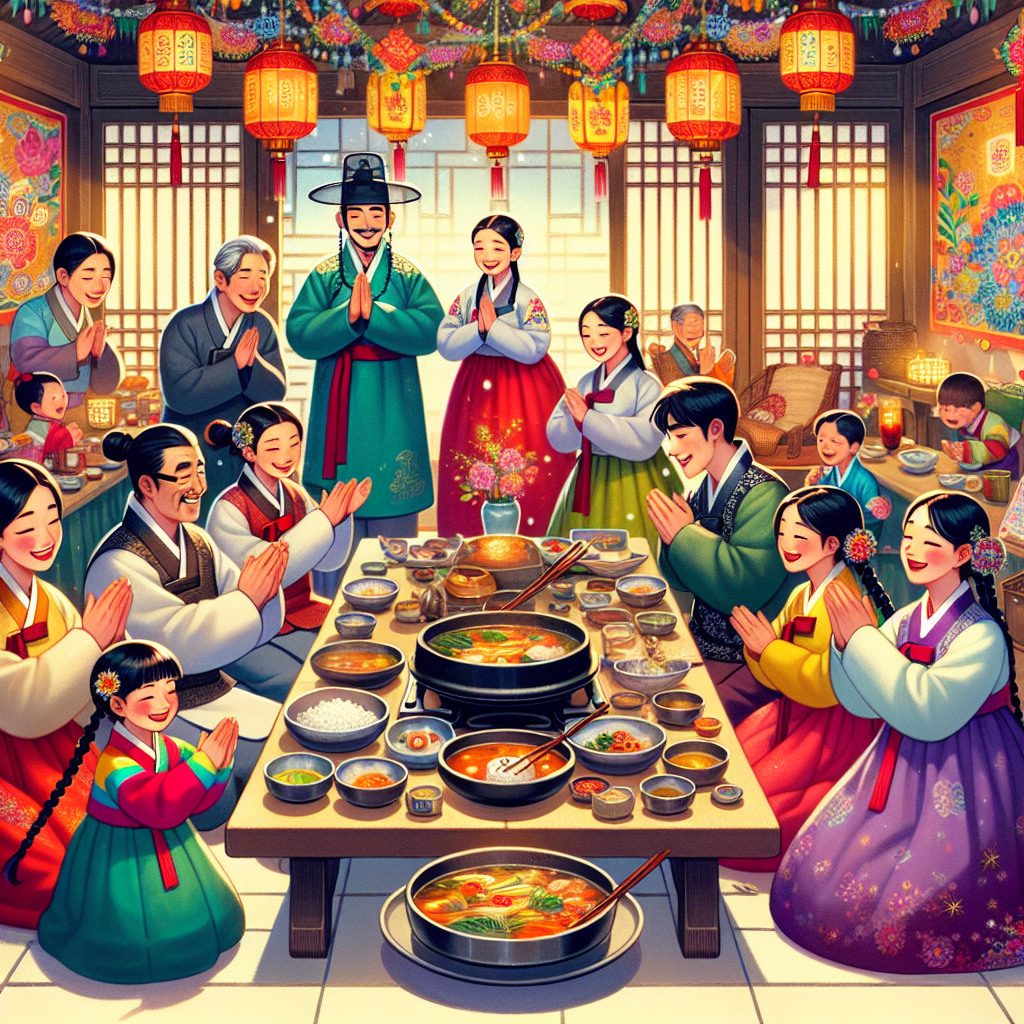Perayaan Seollal: Tahun Baru Imlek Korea, merayakan pergantian tahun dengan tradisi keluarga, makanan khas, dan pakaian tradisional.
Perayaan Seollal: Tahun Baru Imlek ala Korea
-
Table of Contents
Introduction

Perayaan Seollal, also known as Tahun Baru Imlek, is a significant cultural event celebrated by the Korean community in Indonesia. This traditional holiday marks the beginning of the lunar calendar and is filled with various customs and rituals that have been passed down through generations. In this article, we will explore the rich traditions and customs associated with Seollal, highlighting its importance and how it is celebrated in Indonesia.
The Significance of Seollal
Seollal holds great importance in Korean culture as it is a time for families to come together and honor their ancestors. It is a time of reflection, gratitude, and renewal. The holiday typically lasts for three days and is considered one of the most important celebrations in Korea.
1. Ancestral Worship
One of the central aspects of Seollal is the ancestral worship ceremony, known as Charye. Families gather at their ancestral homes or designated places to pay respects to their ancestors. This ceremony involves offering food, drinks, and other items to the spirits of their ancestors. It is believed that by honoring their ancestors, families receive blessings and good fortune for the upcoming year.
2. Traditional Food
Food plays a significant role in Seollal celebrations. One of the most iconic dishes prepared during this time is Tteokguk, a traditional rice cake soup. It is customary to eat Tteokguk on Seollal as it symbolizes gaining a year of age. Other traditional dishes such as Japchae (stir-fried glass noodles), Mandu (dumplings), and Jeon (Korean pancakes) are also prepared and enjoyed during this festive period.
3. Sebae: Bowing to Elders
Sebae is a traditional bowing ceremony performed by younger family members to show respect to their elders. The younger generation bows to their parents, grandparents, and other older relatives while wishing them good health and fortune for the new year. In return, the elders give blessings and often provide monetary gifts called “Sebaetdon” to the younger ones.
Seollal Celebrations in Indonesia
Indonesia is home to a vibrant Korean community, and Seollal is celebrated with great enthusiasm and joy. The Korean Cultural Center in Jakarta organizes various events and activities to promote Korean traditions and customs during this festive period.
1. Traditional Performances
During Seollal, the Korean Cultural Center showcases traditional Korean performances such as traditional music, dance, and martial arts. These performances provide a glimpse into Korean culture and entertain both the Korean community and the local Indonesian population.
2. Hanbok Fashion Show
Hanbok, the traditional Korean attire, takes center stage during Seollal celebrations in Indonesia. The Korean Cultural Center organizes Hanbok fashion shows where participants showcase the beauty and elegance of these traditional garments. It is an opportunity for both Koreans and Indonesians to appreciate the cultural significance of Hanbok.
3. Traditional Games and Activities
Seollal celebrations in Indonesia also include various traditional games and activities. Yutnori, a traditional board game, is a popular choice during this time. Families and friends gather to play Yutnori, fostering a sense of camaraderie and friendly competition. Other activities such as making traditional crafts, learning Korean calligraphy, and participating in traditional tea ceremonies are also organized to engage the community.
Conclusion
Seollal, the Korean Lunar New Year, is a time of deep cultural significance and celebration for the Korean community in Indonesia. The traditions and customs associated with Seollal, such as ancestral worship, traditional food, and bowing to elders, are cherished and passed down through generations. The celebrations in Indonesia, organized by the Korean Cultural Center, provide an opportunity for both Koreans and Indonesians to come together and appreciate the rich cultural heritage of Korea. Seollal serves as a reminder of the importance of family, gratitude, and renewal, and it continues to be a cherished celebration for the Korean community in Indonesia.







